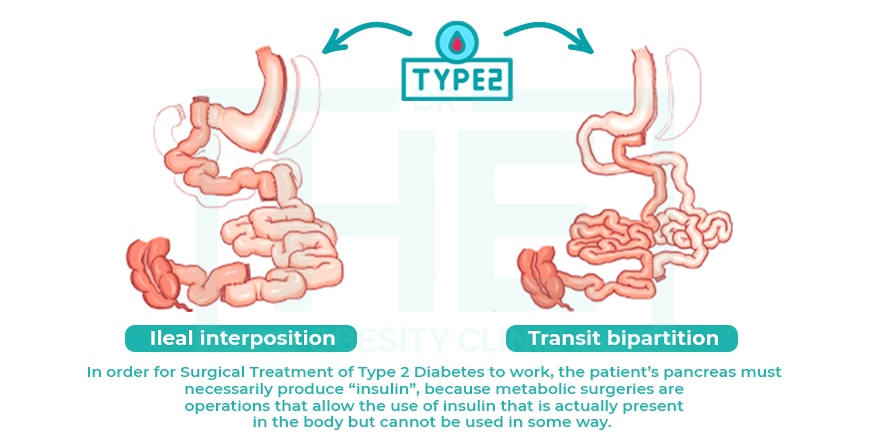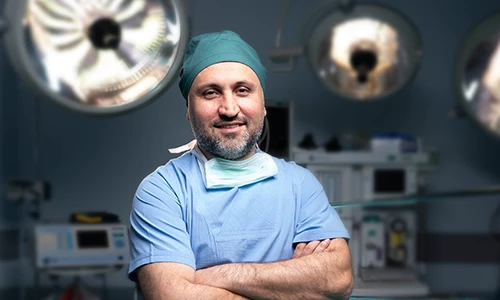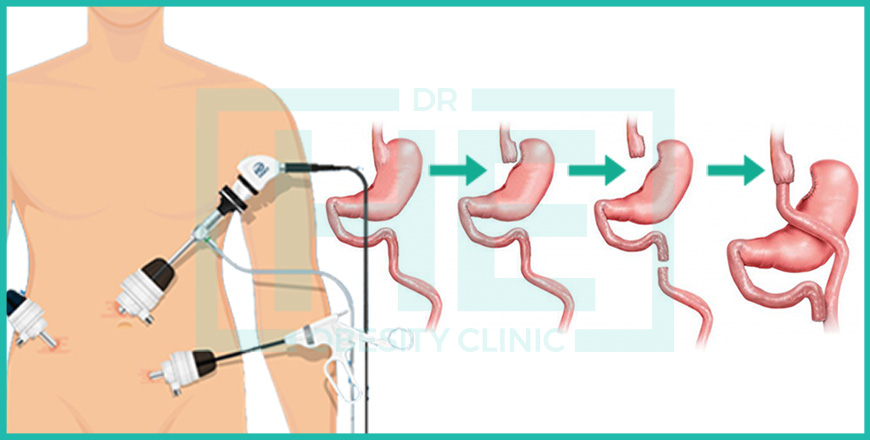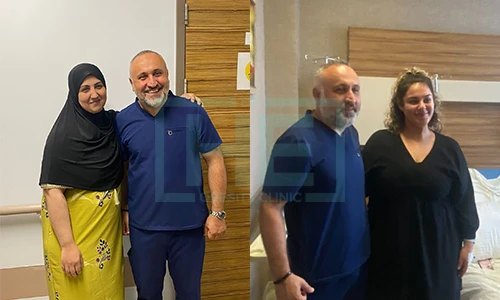
The price of Transit Bipartition Surgery in Turkey can vary depending on factors such as the surgeon’s experience, the clinic or hospital where the surgery is performed, the patient’s medical condition, and the services included (e.g., pre-surgery consultation, post-operative care). On average, the price ranges between $7,000 and $12,000.
🇹🇷 Transit Bipartition Surgery in Turkey
Transit Bipartition Surgery is an advanced bariatric surgery aimed at treating obesity and type 2 diabetes. It is a relatively newer procedure compared to traditional weight-loss surgeries like Gastric Sleeve or Gastric Bypass. Turkey has become a popular destination for this surgery due to the expertise of its bariatric surgeons, modern medical facilities, and more affordable pricing compared to Western countries.
📸 Discover Incredible Transformations with Our Transit Bipartition Surgery in Turkey!
Explore our Before & After gallery to see real patient results and witness how this life-changing procedure has helped individuals achieve their weight loss goals. Each story showcases the remarkable journey from obesity to a healthier, more confident life. Let these success stories inspire your own transformation!





✅ What are the Advantages of Having Transit Bipartition Surgery in Turkey?
Affordable Costs: Up to 70% savings compared to the U.S. and Europe.
Expert Surgeons: Highly experienced bariatric specialists.
Modern Facilities: Cutting-edge hospitals with international accreditation.
All-Inclusive Packages: Surgery, accommodation, and transfers included.
Multilingual Staff: English-speaking medical teams and translators.

📅 Plan Your Trip to Turkey for a Transit Bipartition
Research & Consultation: Choose a reputable clinic and schedule an online consultation.
Select a Package: Opt for an all-inclusive package (surgery, accommodation, transfers, post-op care).
Book Flights: Confirm your surgery date and book your flights to Turkey.
Arrival: The clinic will usually provide airport transfers and guide you through pre-op tests.
Surgery & Recovery: Follow the clinic’s post-op care plan. Stay for recommended recovery time.
Follow-Up: Stay in touch with the clinic for follow-up and remote consultations.


To Meet Online with Prof. Dr. Hasan Erdem 24/7 Make an Appointment
🌟 Reasons for the Popularity of Transit Bipartition in Turkey 🌟
The popularity of Transit Bipartition surgery in Turkey is due to several factors: experienced surgeons, advanced medical facilities, affordable treatment costs, and comprehensive care packages. Additionally, Turkey’s strict adherence to international healthcare standards and its reputation for medical tourism make it a top choice for patients worldwide seeking weight loss solutions.

Dr. Hasan Erdem is an internationally renowned bariatric surgeon in Istanbul, Turkey. With over 15 years of experience, he is a specialist in weight loss procedures such as gastric sleeve, gastric bypass and gastric banding. Defined for his expertise and outstanding results, Dr. Erdem guarantees its patients’ profits and well-being by offering personalized care and comprehensive follow-up.

Safe hospital treatment ensures that all medical procedures, including surgeries and post-operative care, are performed in a controlled and sterile environment. Hospitals follow strict safety protocols, using advanced technology and highly trained staff to minimize risks and ensure patient well-being. This approach guarantees a secure and professional setting, providing peace of mind for patients undergoing treatment.

State-of-the-art medical equipment refers to the most advanced and innovative tools and technology used in healthcare today. These cutting-edge devices ensure precise diagnostics, safer procedures, and more effective treatments. By utilizing the latest technology, hospitals and clinics can provide higher quality care, reduce recovery times, and improve overall patient outcomes.





How is Transit Bipartition Surgery Performed?
The surgery begins with a sleeve gastrectomy, where a large portion of the stomach is removed, reducing its size significantly. This helps limit food intake and decreases the production of ghrelin, the hunger hormone. Next, the surgeon reroutes a portion of the small intestine, bypassing the duodenum (the first section of the small intestine), allowing food to pass directly to the ileum (lower section of the intestine). This rerouting helps improve insulin sensitivity and control blood sugar levels. The surgery creates a dual pathway for food to travel, improving digestion and promoting weight loss. Conducted laparoscopically, this minimally invasive approach allows for quicker recovery and fewer complications compared to traditional surgeries.
Recovery After Transit Bipartition Surgery
Hospital Stay: Typically, you’ll stay in the hospital for 3-5 days for monitoring and initial recovery.
First Week: Rest is crucial. You’ll be on a liquid diet for the first week to help your stomach heal.

Diet Progression: Gradually, you’ll transition from liquids to soft foods over the next 2-4 weeks, as advised by your surgeon and dietitian.
Physical Activity: Light walking is encouraged early on to prevent blood clots. Avoid strenuous activities for at least 4-6 weeks.
Follow-Up: Regular follow-up appointments are essential to monitor your healing and adjust your diet plan.
Long-Term: Full recovery can take several weeks, and you’ll need to follow a new lifestyle with healthy eating habits and regular exercise to maintain weight loss and manage diabetes.

Who is Eligible for Transit Bipartition in Turkey?
For Transit Bipartition, patients with a BMI of 35 or higher who have Type 2 diabetes may qualify. Those with a BMI of 30-34 may also be eligible if their diabetes is difficult to manage with medication and lifestyle changes.
Typically, patients between 18 and 65 years old are eligible. However, age considerations can vary based on individual health conditions.
Patients should not have severe medical conditions that could increase the risk of surgery, such as advanced heart disease or kidney failure.

💸 Transit Bipartition Surgery Cost in Turkey 2025
The cost of Transit Bipartition Surgery in Turkey typically ranges between $7,000 and $12,000. This price may vary depending on the clinic, surgeon expertise, location, and what’s included in the package (e.g., pre-op tests, hospital stay, post-op care, accommodation, and transfers).
🌍 Transit Bipartition Surgery Prices by Country
 Turkey Turkey | $7,000 – $12,000 |
 Mexico Mexico | $14,500 – $21,000 |
 USA USA | $15,000 – $25,000 |
 UK UK | £12,000 – £16,000 |
 Germany Germany | €15,000 – €18,000 |
 Spain Spain | €14,000 – €17,000 |
Why does Transit Bipartition Surgery Cost in Turkey Cheap?
The cost of Transit Bipartition Surgery in Turkey is lower due to affordable labor and operational expenses. Government support for medical tourism and competition among clinics also help reduce prices. Additionally, favorable exchange rates for foreign currencies make Turkey an attractive option for international patients. Many clinics offer all-inclusive packages, further lowering the overall cost.
Does Health Insurance Pay for the Transit Bipartition Surgery?
Whether health insurance covers Transit Bipartition Surgery depends on the provider and the specific plan. In many cases, standard health insurance does not cover this surgery, especially if it is considered experimental or elective. However, some insurance plans may cover it if the surgery is deemed medically necessary to treat conditions like severe obesity or Type 2 diabetes, and if other weight-loss methods have failed.
All Inclusive Packages
All Inclusive Packages
All Inclusive Packages

"I came from Germany . I had my Surgery with Dr. Hassan Erdem. I am very satisfied. He was very nice and friendly. He did good Job. The Hospital was very good and the people are nice. They always checked me up. I almost lost 5 kilos in 6 days."

“Had my operation in may 20th it’s now July 17th I’ve lost 20 kilos best thing I ever done. Feel healthier and happier thanks to all the staff an doctors for their help it was much appreciated will be back to visit soon. Thank you so much for everything."

“The best decision I made in my life was having this operation. I had my surgery 5th of July 2018 and went into it weighing 118 kilos and it’s been just over a year I’m 74 kilos. Worth every single penny I spent and the doctors are so motivating and supporting"

“Thank you for everything doctor Hasan. I had gastric sleeve 7.04.2019. I lost 43 kilos. After the surgery, i felt a little pain but that was worthy. Dr Hasan and his team gave me a new life. Now, As if I never lived before. Thank Dr. HE and his team."

"I was searching for this operation for years. I found Turkey and Turkey was a good option. Before the surgery, I was afraid. But Dr. Hasan Erdem and his team helped me a lot. Now, I lost 13 kilos in one month.. I am getting better everyday."

"I was 120kg and now 75kg, it's Dr. Hasan and his team's miracle. From start to end everything is perfect. They always write to me and ask about my health per week. I made a good decision. Of course, I was worried and I was afraid but their energies were wonderful."
Is it Safe To Have A Transit Bipartition Surgery in Turkey?
Yes, it is generally safe to have Transit Bipartition Surgery in Turkey. The country is known for experienced surgeons, internationally accredited hospitals, and advanced medical facilities. As long as you choose a reputable clinic and verify the surgeon’s credentials, the procedure can be safely performed with good post-operative care.
How to Reach Turkey?
Reaching Istanbul is easy with two major international airports: Istanbul Airport (IST) and Sabiha Gökçen Airport (SAW). Both airports offer direct flights from cities worldwide, making Istanbul highly accessible. Istanbul Airport (IST) serves as the main hub, while Sabiha Gökçen (SAW) is located on the Asian side of the city, providing another convenient option for travelers. After landing, you can reach the city center via taxis, airport shuttles, or public transport from both airports.
Do I Need to Stay in Turkey After Transit Bipartition Surgery?
Yes, you will need to stay in Turkey for a short period after Transit Bipartition Surgery. Most patients are advised to stay for 7 to 10 days to ensure proper recovery and follow-up care. During this time, your surgeon will monitor your healing, perform necessary check-ups, and provide post-operative instructions to ensure everything is progressing well before you return home. This also allows time for addressing any complications, should they arise.
Which is the Best Doctor for Transit Bipartition in Turkey?
One of the best doctors for Transit Bipartition Surgery in Turkey is Dr. Hasan Erdem, a highly experienced bariatric surgeon with a strong reputation for successful weight loss surgeries. With years of expertise in performing gastric sleeve and other bariatric procedures, Dr. Erdem is known for his personalized care, attention to detail, and commitment to patient safety. He practices at the Dr. HE Clinic, which offers state-of-the-art facilities and comprehensive pre- and post-operative care, making it a top choice for international patients seeking weight loss solutions in Turkey.

Frequently Asked Questions About Transit Bipartition Surgery
Transit Bipartition Surgery typically takes 2 to 3 hours to complete.
Transit Bipartition Surgery itself is not painful due to anesthesia, but you may experience some discomfort or mild pain during recovery. Pain is usually manageable with prescribed medications and gradually improves within a few days to weeks.
Yes, there will be small scars after Transit Bipartition Surgery. The procedure is typically done laparoscopically, which involves small incisions, usually leaving minor scars that fade over time. These scars are generally minimal compared to traditional open surgery.
The potential risks associated with Transit Bipartition Surgery include:
- Infection at the incision sites or internally.
- Bleeding during or after the procedure.
- Blood clots, which can lead to complications like deep vein thrombosis.
- Leaks from the reconnected parts of the stomach or intestines.
Yes, you will need to follow a special diet after Transit Bipartition Surgery. Initially, you'll be on a liquid diet for a few days to allow healing. You will then gradually transition to soft foods and, after a few weeks, to solid foods. Long-term, you will need to follow a healthy, balanced diet with smaller portions and avoid foods that may cause discomfort, as guided by your doctor or dietitian. Proper nutrition is key to maintaining the results and preventing complications.




 Türkçe
Türkçe  Deutsch
Deutsch  Français
Français  Español
Español  Русский
Русский  Nederlands
Nederlands  български
български  Português
Português  Română
Română  العربية
العربية




